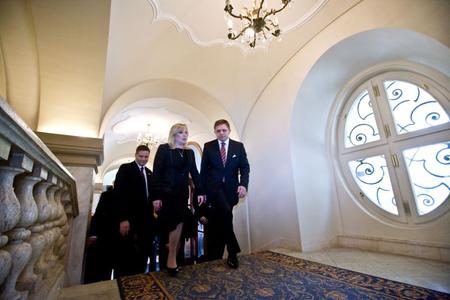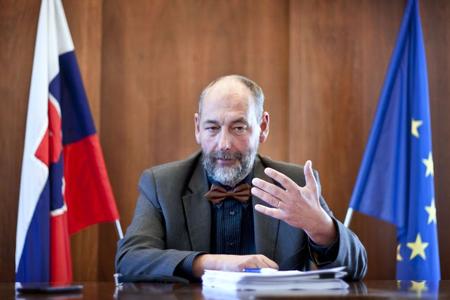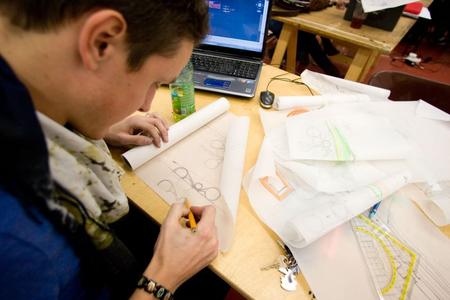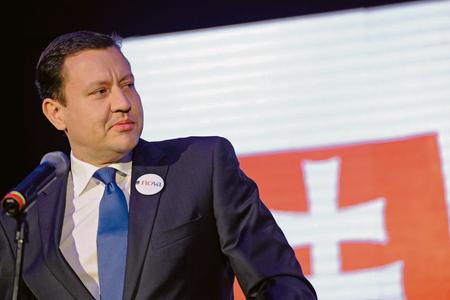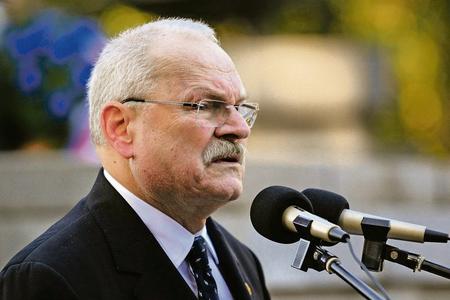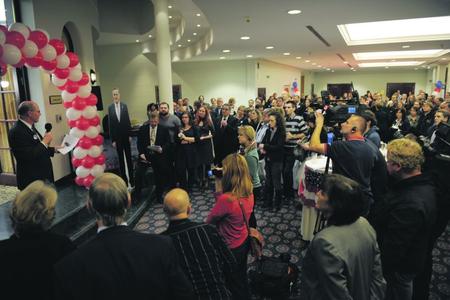- Cypriot recipes: Mahalepi (video included)
- Slovak folklore making a comeback: Unique diversity survived
- Is Slovakia a mafia state?
- Estonian recipes: Estonian potato salad (video included)
- Talking tourism, trade and tapas
- Slovakia is not a mafia state yet, but it is in danger
- Norwegian recipes: Reindeer filet/sirloin (video included)
- Caught by the gravitational pull of Europe, this American is rediscovering his Slovak roots
- News digest: Pellegrini backs NATO’s defence target, praises extended deadline Photo
- Slovakia’s place in Europe’s economy is shifting
- Slovak roots: feeling the gravitational pull of Europe
- Scientists in Slovakia helping create ‘breathing’ glass Photo
- Kanye West is heading to Bratislava. The controversy is not far behind
- Former NATO General Breedlove: Europe can only defend itself briefly, needs the US
- News digest: Hungary hijacks Slovakia’s foreign policy – for several awkward hours
- News digest: Hungary hijacks Slovakia’s foreign policy – for several awkward hours
- Caught by the gravitational pull of Europe, this American is rediscovering his Slovak roots
- Slovakia’s place in Europe’s economy is shifting
- Bratislava’s Nová Tržnica reinvents itself with Yellow Thursdays Photo
- Kanye West is heading to Bratislava. The controversy is not far behind
- Former NATO General Breedlove: Europe can only defend itself briefly, needs the US
- Scientists in Slovakia helping create ‘breathing’ glass Photo
- Rare brain-eating amoeba kills child in Slovakia
- Bratislava’s Nová Tržnica reinvents itself with Yellow Thursdays Photo
- From Seattle to Bratislava: an American’s reverse migration story
- Rare brain-eating amoeba kills child in Slovakia
- Slovakia has given up on attracting quality people. It is disgusting, says expert
- Europe rearms - but can Slovakia be trusted?
- Last Week: Revenge-hungry Smer voters feast on donated ammunition case
- Tax, audit and accounting firms face tech push and talent shortages
- Too little, too late? Bratislava Main Station’s revamp is still a distant prospect
- From Seattle to Bratislava: an American’s reverse migration story
- A year later, Bratislava’s laser spectacle goes global
- From not knowing an English word to being a noted radio announcer in the US Video
- Rare brain-eating amoeba kills child in Slovakia
- Two Slovaks deported from US and Vietnam in separate incidents
- Wish you were here: the lost spas of yesterday
- Biting the hand that feeds us
- Slovakia has given up on attracting quality people. It is disgusting, says expert
- News digest: Pellegrini backs NATO’s defence target, praises extended deadline Photo
- Don't you want to?
- Slovak roots: feeling the gravitational pull of Europe
- Kanye West is heading to Bratislava. The controversy is not far behind
- From doubts to glory: Chára to be inducted into NHL Hockey Hall of Fame Video
- Villages choke on smoke as landfill fire burns for second month Photo
- Here's your guide to summer festivals in Slovakia
- Scientists in Slovakia helping create ‘breathing’ glass Photo More articles ›





